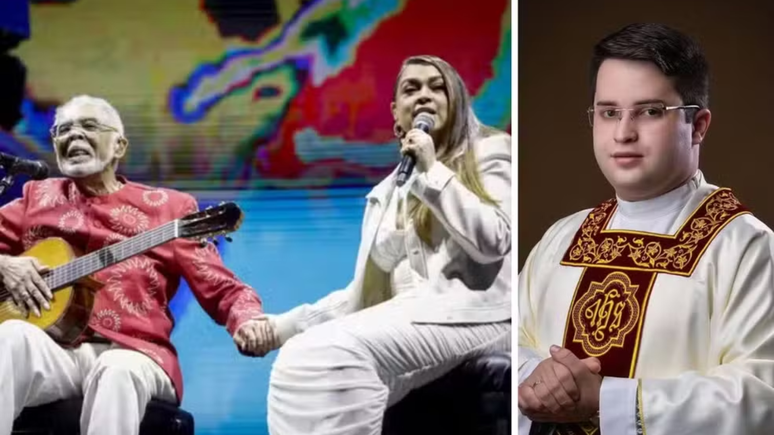The priest who mocked Preta Gil may be banned from saying masses
Faced with the repercussions, Gilberto Gil’s family decided to take legal action. The lawyer Layanna Piau confirmed that the artist will sue the priest, requesting compensation of R$370,000 for moral damages. The accusation points to the crime of religious intolerance and racism, since the priest’s statement directly attacks the beliefs of religions of African origin, such as Candomblé and Umbanda. According to experts, the case could have serious consequences in the criminal and religious fields.
Possible legal and religious consequences
The lawyer Alan Pitombopresident of the Commission to fight religious intolerance of the OAB-BA, underlined that the priest can be covered by law 7.716/1989, known as Lei Caó, which punishes acts of discrimination based on religion, race or ethnicity. He explained that the legislation was tightened in 2023, equating racism and racial slurs, as well as considering social media as an aggravating factor, which can increase the sentence to up to five years in prison. Furthermore, the fact that the crime occurred during a religious celebration may result in the priest being banned from continuing to exercise his priestly functions.
Pitombo also reinforced the severity of hate speech in digital environments, saying: “Social networks have ended up becoming a favorable territory for this. An attack on religiosity is an attack on identity”. The Public Prosecutor of Bahia can file a complaint, as this is a public action. The case remains under analysis and should open an important debate on respect for religious differences and on the responsibility in the use of words by spiritual leaders.
Source: Terra
I am Amanda Gans, a motivated and ambitious professional in the news writing industry. With over five years of experience in this field, I have developed an eye for detail and an ability to craft stories that captivate readers. I currently write for Gossipify, where I specialize in beauty & celebrities news. My passion lies with exploring the world of beauty through writing, interviewing experts and developing articles that are both informative and entertaining.
You may also like

Sheron Menezes opens rare photo album with husband and declares: ‘Life is more beautiful’
The actress used her social networks to share a tribute to her husband with her

Paola Carosella breaks the silence and comes to the defense of Renata Vanzetto after the MasterChef mockery
The former MasterChef Brasil judge spoke out on social media and supported her professional colleague

Internet chooses the worst dressed at Mari Fernandez’s wedding: ‘Always strange’
Singer Mari Fernandez marries influencer Julia Ribeiro in the hinterland of São Paulo, on the

Tomorrow is ours: the love triangle with Judith and Violet, the arrival of the fathers of the Roussel family… Maxime Leloue (Jordan) talks about the following.
Will Jordan’s new arch be ours tomorrow? Catching up at the 2025 La Rochelle Fiction

The American company proposes to provide “sun” after sunset, but should we – and can we – really do this?
Satellites reflecting sunlight back to Earth seem like the stuff of science fiction, but they

Billionaire invests in restrictive diets and unusual techniques to ‘live forever’
The billionaire behind Project Blueprint radicalizes the routine to “rejuvenate” – with a plant-based diet,

https://rollingstone.com.br/musica/michael-jackson-como-era-trabalhor- Segundo-jennifer-batten/
American guitarist toured with the King of Pop on three world tours, between 1987 and


